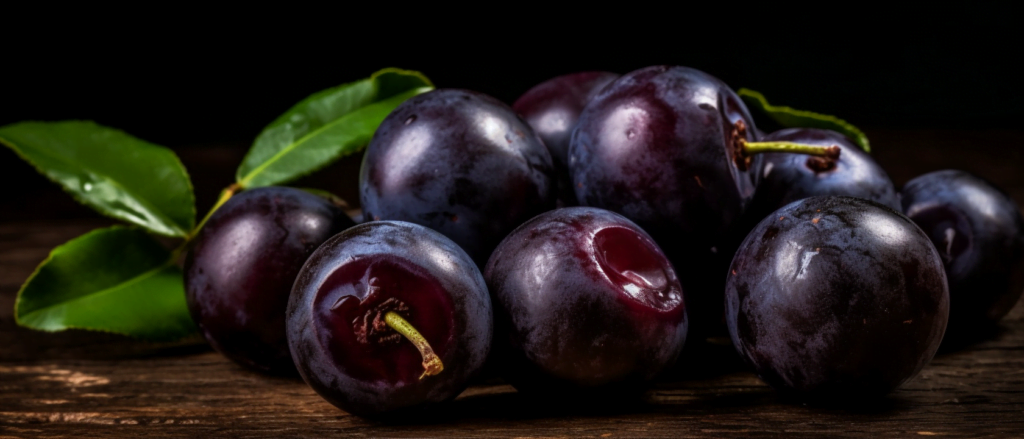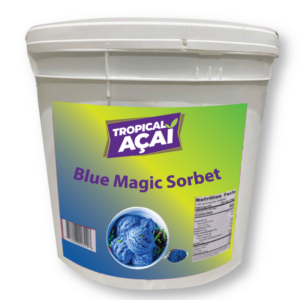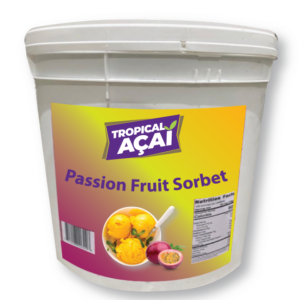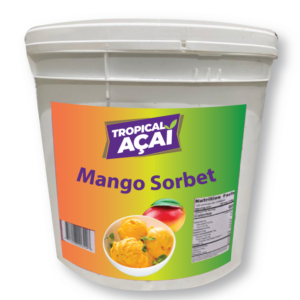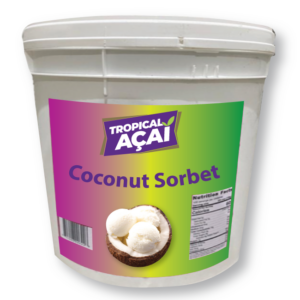Introduction
Discovering the Acai Berry: A Nutritional Powerhouse
The acai berry, a small, dark purple fruit native to the Amazon rainforest, has become increasingly popular due to its incredible nutritional profile. Packed with antioxidants, vitamins, and minerals, acai berries are considered a superfood for a good reason. This article will explore the many aspects of acai berries, including their history, cultural significance, health benefits, and more.
Acai Berries: The Amazonian Treasure Worth Exploring
The journey of acai berries from the depths of the Amazon rainforest to becoming a global sensation is fascinating. This nutrient-dense fruit has captured the attention of health enthusiasts, food lovers, and entrepreneurs alike. Join us as we delve into the world of acai berries, providing a comprehensive guide to everything you need to know about this fantastic fruit.
The History and Cultural Aspects of Acai Berries
The Origins of Acai Berry: Tracing Back to Aztec and Maya Civilizations
Acai berries have a rich history that dates back centuries, with connections to the Aztec and Maya civilizations. Indigenous tribes in the Amazon rainforest, Central America, and Mexico have been consuming and using acai berries for their medicinal properties for generations. The acai berry played a vital role in the diet and culture of these tribes, as it was a primary source of nutrition and sustenance.

Acai palms, which produce acai berries, grow predominantly in the Amazon rainforest’s swamps and floodplains, but they were also cultivated and consumed by the Aztec and Maya civilizations. In these ancient societies, acai berries were recognized for their nutritional value and were utilized as a source of energy, especially for warriors during battles and long journeys.
The fruit’s deep roots in the Amazon region and its connections to the Aztec and Maya civilizations have greatly influenced how acai berries are consumed and perceived today. These ancient origins highlight the longevity and importance of acai berries in human history and their continued relevance in modern nutrition and health.
Cultural Significance of Acai Fruit in Amazonian Tribes
The acai berry holds great cultural significance for the indigenous tribes of the Amazon. It has long been a staple food, providing essential nutrients and energy for daily activities. Additionally, acai berries were used for medicinal purposes, as tribes believed the fruit possessed healing properties.
Traditionally, the acai fruit was harvested by hand, with tribespeople climbing the tall acai palms to collect the berries. This traditional method of harvesting has been passed down through generations and remains an integral part of the acai berry’s cultural legacy.

Acai Berry: A Symbol of Brazilian Heritage
Acai berries have become a symbol of Brazilian heritage, particularly in the country’s northern regions. The broader Brazilian population has embraced the fruit, and its consumption has evolved. Acai bowls, a famous Brazilian dish made from acai berry pulp, have become synonymous with the country’s cuisine and culture.
As acai berries gained international recognition, their importance in Brazil’s cultural identity grew more robust. As a result, the fruit is now celebrated for its rich history, cultural significance, and powerful health benefits.
Acai Sustainability and Environmental Impact
Sustainable Harvesting Practices for Acai Berries
Sustainable harvesting practices are essential to preserve the acai berry’s natural habitat and avoid environmental degradation. Selective harvesting is one of the primary sustainable harvesting methods used in acai berry production. Selective harvesting involves only harvesting ripe fruit, which reduces the likelihood of over-harvesting and helps protect the plant’s reproductive capabilities. Another method to ensure sustainable harvesting is to limit harmful chemicals, such as pesticides, herbicides, and fertilizers. These chemicals can harm the environment, wildlife, and local communities and negatively impact the fruit’s nutritional content.
Sustainable harvesting practices also consider the social and economic well-being of the communities involved in acai berry production. This includes providing fair compensation and access to education and healthcare. Sustainable harvesting practices can help ensure that the communities engaged in acai berry production can continue to rely on this valuable resource for their livelihoods while preserving the environment for future generations.
The Role of Fair Trade in Acai Berry Production
Fairtrade practices are crucial in supporting sustainable acai berry production and promoting social and economic development in local communities. Fairtrade certification ensures that producers receive fair product prices, regardless of market fluctuations, and promotes responsible environmental practices. Reasonable trade practices also support social and economic benefits for the communities involved in acai berry production, such as access to education and healthcare and fair compensation for their labor.
Fairtrade practices also help promote transparency in the acai berry industry, allowing consumers to make informed choices about the products they purchase. When consumers choose fair trade products, they support the ethical and sustainable production of acai berries and contribute to positive social and economic development in local communities. By supporting reasonable trade practices, we can ensure that acai berry production remains sustainable and supports the well-being of people and the environment.
Reforestation Efforts and Acai Palm Cultivation
Cultivating acai palms through sustainable practices can help support reforestation efforts and preserve the Amazon rainforest. In addition, Acai palm cultivation can provide an economic incentive for local communities to preserve and protect the rainforest. Sustainable cultivation practices include avoiding harmful chemicals, using responsible land management practices, and using water-efficient irrigation techniques.
Promoting acai palm cultivation can help prevent deforestation and protect the Amazon rainforest’s biodiversity. Additionally, acai palm cultivation can provide a source of income for local communities, improving their economic well-being and providing an alternative to unsustainable land use practices. Finally, as consumers, we can support sustainable acai berry production by choosing products that promote responsible land use and help protect the environment.
Acai’s Global Popularity: From Obscurity to Superfood Status
The acai berry’s journey from obscurity to global superfood status began in the early 2000s. Then, health and wellness enthusiasts started recognizing the impressive nutritional profile of acai berries, leading to increased demand for the fruit in international markets.
Today, acai berries are popular in smoothies, bowls, and other health-conscious dishes. The fruit’s vibrant color, unique flavor, and numerous health benefits have contributed to its widespread appeal, making it a staple in health food stores and restaurants worldwide.
Acai Berries Nutrition Facts and Health Benefits
Acai Berry Nutrition Profile: What Makes It a Superfood?
Acai berries are often considered a superfood due to their unique nutritional profile. These small, dark purple fruits are rich in antioxidants, which help combat free radicals and oxidative stress in the body. Acai berries also contain essential vitamins and minerals, such as vitamins A, C, and E, along with calcium, iron, and potassium.
Acai berries are nutrient-dense fruits offering a variety of vitamins, minerals, antioxidants, and other essential nutrients. Here are the approximate nutrition facts for a 100-gram (3.5 ounces) serving of acai berry puree:
- Calories: 70 kcal
- Total Fat: 5 g
- Saturated Fat: 1.5 g
- Monounsaturated Fat: 1.3 g
- Polyunsaturated Fat: 1.0 g
- Omega-3 Fatty Acids: 14 mg
- Omega-6 Fatty Acids: 907 mg
- Total Carbohydrates: 4 g
- Dietary Fiber: 2 g
- Sugars: 2 g
- Protein: 1 g
- Vitamins:
- Vitamin A: 15 IU (0.3% Daily Value)
- Vitamin C: 20 mg (33% Daily Value)
- Vitamin E: 1.4 mg (7% Daily Value)
- Vitamin K: 19.8 mcg (25% Daily Value)
- Riboflavin (Vitamin B2): 0.4 mg (23% Daily Value)
- Niacin (Vitamin B3): 0.4 mg (2% Daily Value)
- Vitamin B6: 0.1 mg (4% Daily Value)
- Folate (Vitamin B9): 8 mcg (2% Daily Value)
- Minerals:
- Calcium: 20 mg (2% Daily Value)
- Iron: 1.5 mg (8% Daily Value)
- Magnesium: 32 mg (8% Daily Value)
- Phosphorus: 58 mg (6% Daily Value)
- Potassium: 230 mg (7% Daily Value)
- Sodium: 5 mg (0% Daily Value)
- Zinc: 0.6 mg (4% Daily Value)
- Copper: 0.3 mg (15% Daily Value)
- Manganese: 6.2 mg (310% Daily Value)
Please note that these values are approximate and may vary depending on the specific acai berry product and serving size. In addition, the percentages for Daily Values are based on a 2,000-calorie diet.
Furthermore, acai berries provide healthy fats, including omega-3, omega-6, and omega-9 fatty acids. These fats are crucial in maintaining general health and supporting brain function. Acai berries are also a good source of dietary fiber, which aids digestion and helps maintain a healthy weight.
Antioxidant Powerhouse: Acai Berries’ Role in Fighting Free Radicals
Acai berries are best known for their high antioxidant content, which helps neutralize free radicals in the body. Free radicals can cause oxidative stress, leading to cellular damage and increasing the risk of various chronic diseases.
The antioxidants found in acai berries, such as anthocyanins and polyphenols, have been shown to combat free radicals effectively. This makes acai berries valuable to any diet, promoting overall health and well-being.
Acai Berries and Cardiovascular Health: A healthy Choice
The healthy fats and antioxidants in acai berries can improve cardiovascular health. Omega-3, omega-6, and omega-9 fatty acids help reduce inflammation, lower harmful cholesterol levels, and improve blood circulation. Moreover, the antioxidants in acai berries protect the body by preventing the oxidation of cholesterol, which can lead to plaque buildup in the arteries.
Incorporating acai berries into your diet can support general health and reduce the risk of health-related issues.
Boosting Immunity with Acai Berries: Strengthening Your Defenses
Acai berries are rich in vitamins and minerals that support a robust immune system. Vitamins A, C, and E in acai berries maintain the body’s natural defenses against infections and diseases. Additionally, acai berries’ high antioxidant content helps reduce inflammation, further boosting immunity.
Including acai berries in your daily routine can help strengthen your immune system and protect against various illnesses.
Aiding Weight Loss with Acai Berries: A Healthy Addition to Your Diet
Acai berries can be a helpful addition to a weight loss plan, thanks to their high fiber content and nutrient-dense nature. Fiber aids digestion and promotes a feeling of fullness, reducing the likelihood of overeating. Furthermore, the healthy fats found in acai berries can help regulate metabolism and support weight management.
It’s important to note that acai berries should be consumed as part of a balanced diet and exercise routine for optimal weight loss results. Adding acai berries to smoothies, bowls, or salads can provide a nutritious, low-calorie option that supports a healthy lifestyle.
Acai Berries and Brain Health: Nourishing Your Cognitive Function
Acai berries’ impressive nutritional profile also benefits brain health. The omega-3 fatty acids found in acai berries are crucial in maintaining brain function, improving memory, and preventing cognitive decline. Moreover, antioxidants in acai berries protect brain cells from damage caused by free radicals and inflammation.
Incorporating acai berries into your diet can support overall cognitive health, helping to keep your mind sharp and focused.
Acai Berry Recipes and How to Make Acai Bowls at Home
Acai Bowl Basics: Creating the Perfect Acai Berry Base
Acai bowls are a popular and delicious way to enjoy the benefits of acai berries. To create the perfect acai bowl base, you’ll need frozen acai berry puree, a liquid of your choice (such as almond milk, coconut water, or yogurt), and a blender. Blend the frozen acai puree and juice until smooth, adjusting the consistency to your preference.
You can add other fruits, such as bananas or berries, to your acai bowl base for additional flavor and nutritional benefits.
Customizing Your Acai Bowl: Toppings for Every Taste
One of the best things about acai bowls is their versatility. You can customize your acai bowl with endless toppings to suit your taste preferences and dietary needs. Popular topping options include fresh fruit, granola, nuts, seeds, coconut flakes, and honey. Experiment with different combinations of toppings to create your perfect acai bowl.
Acai Berry Smoothie Recipes: Sip Your Way to Better Health
Acai berry smoothies are another delicious way to enjoy the benefits of acai berries. Blend frozen acai puree with your choice of fruits, vegetables, and liquid for a nutritious and tasty drink. Add protein powder or nut butter for an extra energy boost and nutrition.
Acai berry smoothies make for a convenient and satisfying breakfast, snack, or post-workout treat.
Equipment for Processing Acai Berries and Storing Acai Products
Essential Tools for Acai Berry Processing: Unlocking the Fruit’s Potential
Processing acai berries requires specific equipment to preserve their nutritional content and create various acai products. Some essential tools for acai berry processing include:
- Acai Berry Pulping Machine: This machine separates the acai berry pulp from the seed, producing a puree that can be used to create acai bowls, smoothies, and other recipes.
- Blender: A high-quality blender is essential for making acai bowls and smoothies at home, ensuring a smooth and consistent texture.
- Freezer: A freezer is necessary to store frozen acai berry puree, often sold in single-serving packs for easy use.
Proper Storage for Acai Berries and Acai Products: Maintaining Freshness and Quality
Properly storing acai berries and acai products is crucial to maintaining their freshness and nutritional content. Follow these storage guidelines for acai berries and acai products:
- Fresh Acai Berries: Fresh acai berries have a short shelf life and should be consumed within a few days of purchase. Store them in the refrigerator to prolong their freshness.
- Frozen Acai Berry Puree: Store frozen acai berry puree in the freezer and use it within six months for optimal freshness and quality. Once thawed, the puree should be used immediately and not refrozen.
- Acai Berry Powder: Acai berry powder should be stored in a cool, dry place, away from direct sunlight. Ensure the container is sealed tightly to prevent moisture from entering.
Acai Berries for Business Owners: Market Analysis, Commercial Aspects, and Certifications
Acai Berries Market Analysis: Understanding the Demand and Potential
The global market for acai berries has experienced significant growth in recent years, driven by increasing consumer awareness of their health benefits and the popularity of acai bowls and smoothies. Acai berries are primarily sourced from Brazil and exported to international markets, including the United States, Europe, and Asia.
The rising demand for acai berries presents a lucrative opportunity for businesses in the health food industry, such as cafes, smoothie bars, and health food stores. Entrepreneurs looking to capitalize on this trend should know the market potential, growth prospects, and competition within the acai berry industry.
Commercial Aspects of Acai Berries: Sourcing, Pricing, and Distribution
Sourcing, pricing, and distribution are crucial aspects of any acai berry-related business. A few key considerations include:
- Sourcing: Ensure that your acai berries or acai products are sourced from reputable suppliers, preferably those who adhere to sustainable and ethical practices.
- Pricing: Determine a competitive pricing strategy for your acai berry products, considering product quality, target market, and production costs.
- Distribution: Develop an efficient distribution network to ensure that your acai berry products reach your target market promptly, maintaining their freshness and quality.
Relevant Certifications for Acai Berry Businesses: Ensuring Quality and Trust
Obtaining relevant certifications for your acai berry business can help establish trust and credibility with your customers. Some certificates to consider include the following:
- Organic Certification: An organic certification verifies that your acai berries or acai products are grown and processed without synthetic chemicals, genetically modified organisms, or irradiation.
- Fair Trade Certification: An appropriate trade certification ensures that your acai berries are sourced from producers who follow ethical and sustainable practices, providing their employees with fair wages and working conditions.
- **Non-GMO Certification**: A non-GMO certification confirms that your acai berries or acai products are not genetically modified and are produced without genetically modified organisms.
- Vegan Certification: A vegan certification verifies that your acai berry products do not contain animal-derived ingredients or are not tested on animals.
- Gluten-Free Certification: A gluten-free certification ensures that your acai berry products are free from gluten-containing grains and have been processed in a gluten-free environment.
These certifications can help differentiate your acai berry business from competitors and appeal to a broader range of health-conscious consumers.
Frequently Asked Questions about Acai Berries
1. Are acai berries safe to consume during pregnancy?
Acai berries are generally considered safe to consume during pregnancy in moderation. However, pregnant women should consult their healthcare provider before incorporating new foods into their diet.
2. Can acai berries cause allergic reactions?
While rare, some individuals may experience an allergic reaction to acai berries. If you suspect you are allergic, consult a healthcare professional before consuming acai berries or acai products.
3. Can acai berries interact with medications?
Acai berries are not known to cause significant interactions with medications. However, if you are taking prescription medications, it’s always best to consult your healthcare provider before adding acai berries to your diet.
4. Are acai berries suitable for people with diabetes?
Acai berries have a low glycemic index and are rich in fiber, making them suitable for individuals with diabetes when consumed in moderation. However, monitoring blood sugar levels and consulting with a healthcare professional for personalized advice is essential.
5. How much acai berry should I consume daily for optimal health benefits?
There is no standard recommended daily serving size for acai berries. However, consuming around 100 grams (3.5 ounces) of acai berry puree or 1-2 teaspoons of acai berry powder daily is generally considered safe and beneficial.
6. Are acai berries suitable for children?
Acai berries can be a healthy addition to a child’s diet, as they are rich in nutrients and antioxidants. However, monitoring portion sizes and consulting with a pediatrician for personalized advice is essential.
7. Can acai berries help improve skin health?
The antioxidants and essential nutrients in acai berries may help improve skin health by reducing inflammation, promoting collagen production, and protecting against free radical damage.
8. Is it possible to consume too much acai berry?
While acai berries are nutritious, consuming excessive amounts may lead to gastrointestinal discomforts, such as bloating and diarrhea. Therefore, enjoying acai berries in moderation is essential to a balanced diet.
9. Can acai berries help with arthritis or joint pain?
The anti-inflammatory properties of acai berries may help alleviate arthritis or joint pain. However, more research is needed to determine the extent of these benefits, and individuals should consult with a healthcare professional for personalized advice.
10. Are acai berries suitable for a keto diet?
Acai berries can be included in a keto diet in moderation, as they are low in carbohydrates and healthy fats. However, it is essential to monitor portion sizes and ensure they fit within your daily carb limit.

